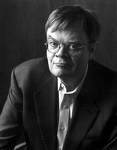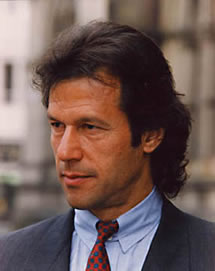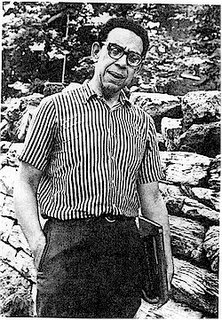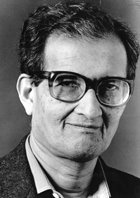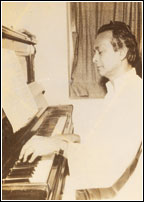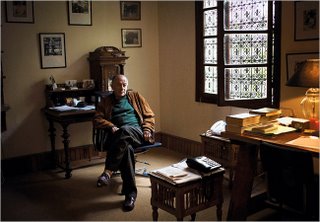S. Asad Raza's essay on Lahore in
http://www.3quarksdaily.com/ posted on their site on Monday, February 6th:
Dispatches: Lahore
Lahore is perhaps the most underappreciated city in the world. The widespread ignorance of the charms of such a beautiful, complicated, and historically important city is sad, though unsurprising, given Western conceptions of the Muslim world - India has droves of tourists, while Pakistan has virtually none. Most of its natives, and most Pakistanis generally, rightly regard it as their country's most cultured metropolis, but even this acclaim does not go far enough. Lahore is the conservatory of a lost world whose traces have been largely erased from more touristic destinations, like Delhi and Agra - I will come to the reasons for this below. The world in general has few cities that interweave so seamlessly a great vitality today (the city is about the twenty-fifth largest on the globe) with an unbroken and luxurious history (spanning the last two millennia). Only in Lahore do you find the sepulcher of the legendary Anarkali, the star-crossed dancing girl buried alive for her love of the young prince Selim (the film Mughal-e-Azam is a version), inside the dusty Archives of the Punjab Secretariat, which was a mosque that the British whitewashed, and is now decorated with portraits of British colonial governors. Layers and layers: it's that kind of place.
Beyond its Mughal grandeur, landscaped gardens, and Sufi shrines, beyond its dense bazaars, colonial museums and Parisian boulevards, beyond its kebabs, nihari (shank stew) and sarson ka saag with makai ke roti (mustard greens with cornbread roti), beyond the G.T. road, the insane rickshaw driving and Kipling's cannon Zamzama, there is a part of Lahore that I believe is one of the most culturally important districts in Asia: the Walled City. To cross the threshold of any of the gates of its unbreached walls is to cross into a truly unique zone. There is simply no other city anywhere that has preserved the mixture of influences that produced the fifteenth and sixteenth centuries' great cultural flowering in this part of the world. In Fatepur Sikri (near Agra), you can see an abandoned capital that records the intermingling of Muslim, Hindu, mystical, secular, imperial and local influences that were synthesized during the reign of Akbar, the greatest Mughal. In Lahore, you can see what that intermingling actually looked like, rather than merely its reflection in elevated architecture. Traverse the walled city from one gate to another, get lost, and find your way back out. It's an experience of incredible density and richness.
There are also moments of great solitude to be found amidst the clamor. Wazir Khan's Masjid might be the most beautiful mosque in the world (Wazir Khan was a friend and trusted ally of the emperor Shah Jahan, and shared his love of building - the hamaam, or baths, he built on the palace grounds are also worth a look). To find it isn't so easy: you must notice an unmarked little stone gateway off to the side of a cacophonous street full of utensil bazaars and giant steaming woks of milk for tea. To enter the mosque of Wazir Khan after that fray is to enter a heterotopia, an "other space" as moving as there is. The noise dies away and a thousand pigeons flocking from side to side of the courtyard animate some sixteenth-century spirit. It's a haunted, benevolent place. Then back out towards children clinging five to a Vespa, their dads weaving desperately between knife sellers and kebab wallahs, dodging donkeys and low-hanging arches.
Another religio-cultural influence that Lahore possesses in greater quantities than any other city is that of Sufism. The mystical sect of Islam is commemorated with hundreds, maybe thousands, of shrines to Sufi saints, many of which are difficult to find. One nestles just outside the colonial-era King Edward Medical College, which resembles a sort of hot-weather Hogwarts. These shrines, in any case, are fascinating to see if one's experience of Muslim culture is limited. They are a proof of the mutiplicities of Islam and a rebuke to the repulsiveness of any orthodoxy that wishes to curb their crazily blissful peacefulness. The Sufi, of course, are also responsible for qawwalimusic, and Lahore is full of qawwali performances. Nusrat Fateh Ali Khan, the famous Pakistani vocalist, was a Punjabi, and at the shrines you imbibe something of the flavor of the intoxicating gentleness that defined him.
The capital of Punjab, Lahore was strategically important for many of India's rulers, becoming under the Mughals an imperial city and gateway to Afghanistan and the frontier. The most lasting mark of Mughal rule is the imposing Badshai Masjid, an enormous mosque built by Auranzeb (the son and imprisoner of Shah Jahan, builder of the Taj Mahal) with an adjoining fort and extensive gardens. There is also a Sikh temple sitting next door - the sight of Sikhs openly coming to and from a place of worship inside Pakistan is a heartening one. You can eat the aforementioned Punjabi mustard greens and cornbread roti from little shacks right outside the Shahi Qila's walls. And I highly recommend that you do. Here you'll also find Coocoo's, a famous old restaurant decorated with portraits of the women who ply these streets at night. It never seems to be serving food, but eating in Lahore is a humbler thing anyway. The nihari shops at the walled city gates are worth braving (disregard cowardly gastroenterologists): shank meat buried in embers, simmered overnight and topped with fresh ginger, chilies, coriander and lime juice is about as good as eating can get. The chicken karhais of Lahore, cooked to order with pieces of stringy, tasty chicken and served with the best naan, are also, for me, a pinnacle of gastronomy, expressing Punjabi zest directly and eloquently. These are, after all, the people who invented bhangra.
Funnily enough, the reason for the unique preservation of Lahore's walled city is largely luck. Certainly equivalent districts existed in other cultural capitals of North India, most notably in Delhi and Lucknow, the two centers of the high culture of Urdu poetry. Sadly, both cities' inner districts were razed completely in 1857, as payback for the Revolt against British rule. Lahore remained untouched. What the British did by burning down those cities but leaving the great Mughal structures was something roughly like destroying London except for the Tower and St. Paul's: the trademark "high" points of the city survived but none of the textures of its lived reality, the influences that suffuse a city's culture, its streets. In Lahore, by contrast, you can see what tourists can only imagine at the Red Fort or the Taj Mahal: the dense, complex, and still vital operations of an inner city bursting with markets, shrines, mosques, food, dancing girls, riotous children. That's what makes Lahore different: its history is sometimes worn on its sleeve and sometimes hidden within, but never is it advertised or reified. It's lived.
Having grown up in Lahore, Asad Raza's beautiful evocation of that wonderful city is enchanting. My gratitude to him for enabling a walk down memory lane and giving this unique city another articulate voice.
On my visit to Lahore last year, I visited Masjid Wazir Khan inside Delhi darwaza and can't improve on his description of its peaceful beauty. Also visited the Faqirkhana museum inside Bhati darwaza. It is a shame how infrequently I visited the walled city while growing up in Lahore even though my
Phuphi lived inside Lohari darwaza. Whenever we went to see her, my father would park our red Volkswagen near Naimat Kada and we would walk into the
androon shehr. I still remember a feeling of entering another world of people who looked different and seemed more frantic, houses and shops that looked like they had been built for Lilliputians.
I find it heartening that Lahore is being rediscovered by its many natives who live there or have left for foreign shores and more is being written about the city in and outside Pakistan. Yasmeen Lari's Heritage Guide on Lahore is a treasure (with maps drawn by the author) and she deserves rich tribute for exploring the "layers upon layers" of Lahore so systematically. Bapsi Sidhwa has just edited an anthology of writings on Lahore called Beloved City (to be published outside Pakistan as the
"City of Sin and Splendor"). Pran Neville's memoir of pre-partition Lahore is also a valuable read about aspects of the city that have vanished (including his recollection of a performance by K.L Sehgal). There are some interesting new works in Urdu as well including a well researched book on Lahore's historic cemetery Miani Sahib and the leading lights of the city who are buried there. I think the book is called "Lahore ke Mashaheer". Another interesting book is Chishti's book on "Lahore ki Zaaten aur un ki Rasoomaat". Perhaps, on another occassion I will put on this blog a list of books on Lahore I have been able to discover over the last couple of years.
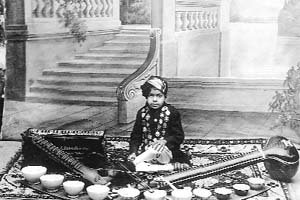 This post owes a direct debt to Bhupinder Singh's recent entry on his blog. It has inspired me to bring together some scattered items about Master Madan.
This post owes a direct debt to Bhupinder Singh's recent entry on his blog. It has inspired me to bring together some scattered items about Master Madan.
